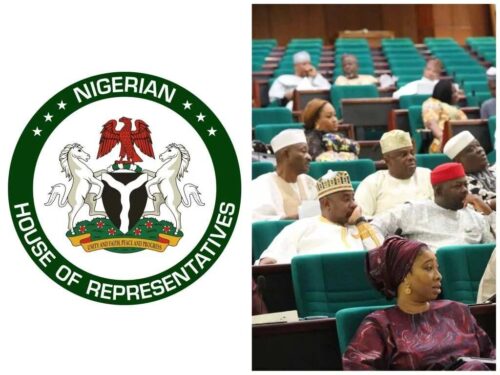In response to concerns over the declining value of the Nigerian Naira against foreign currencies, particularly the United States Dollar, the House of Representatives in Nigeria has taken action. The House has initiated an investigation into the use of foreign currencies as legal tender for domestic transactions within the country.
The move comes as the House expresses alarm over the deteriorating exchange rate and its potential impact on the Nigerian economy. The House has called upon the Central Bank of Nigeria (CBN) to take measures to address the situation.
Among the recommendations put forward by the House is a call for the CBN to implement monetary policy adjustments aimed at stabilizing the Naira. Additionally, the House urges the CBN to combat speculative activities in the foreign exchange market and consider increasing the withdrawal limit for the Naira to alleviate pressure on foreign currencies.
The House is also calling on the Federal Government to play a role in addressing the economic challenges. It recommends the formulation of policies and structural reforms aimed at reducing corruption and promoting economic diversification. Furthermore, the government is urged to boost exports and reduce imports by instilling confidence in foreign investors through fiscal and monetary policy measures.
The House has assigned the Committees on Banking Regulation and National Security and Intelligence to collaborate with the CBN to devise compliance strategies in response to the situation.
- House of Reps Moves To Revive Nigeria-China Currency Swap Deal
- House Deputy Speaker Proposes National Apprenticeship Legislation
The House’s actions are in response to the alarming depreciation of the Naira’s value, which has led to increased inflation rates and elevated living costs, particularly affecting vulnerable segments of the population. The motion also highlights the dependency of Nigeria’s economy on global oil prices, as a significant portion of the country’s export earnings is derived from oil.
The declining value of the Naira poses challenges in attracting foreign investment and may result in higher external debt servicing costs for the government. The House emphasizes that addressing these financial challenges requires collective responsibility, with Parliament playing a pivotal role as the voice of the common man.
The investigation and recommended actions aim to address the concerns surrounding the use of foreign currencies in Nigeria’s domestic transactions and the broader economic challenges stemming from the Naira’s depreciation.




